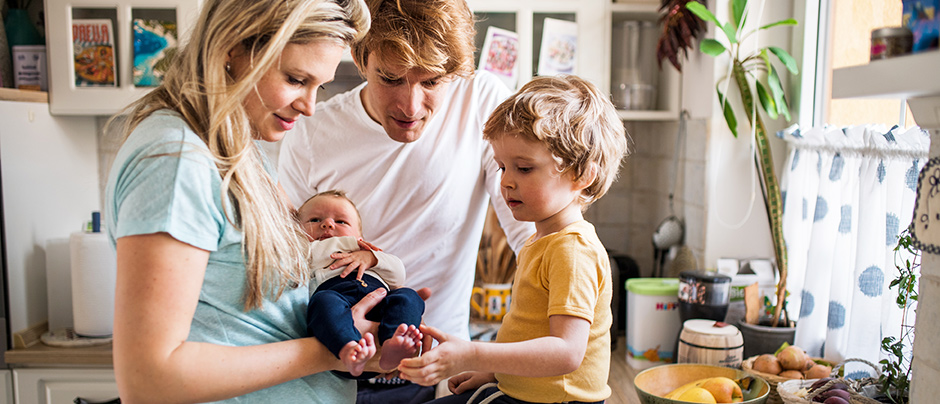Your lives are about to change … again. This time, however, you’re more tired, more aware of the difficult early days of infancy, and more concerned about the intricacies of balancing life with a new baby and an older sibling. Those precious nap times you nabbed during the first pregnancy are now filled with the boundless energy of a young child who demands your time and attention. You may be overwhelmed with practical questions, such as what to do when you’re nursing the baby and your older child starts creating mischief. And you may be overwhelmed with mixed emotions about the loss of the special relationship you have with your older child.
Luckily, there are multiple benefits from growing your family as well. Your children will learn about cooperation, have a lifetime of practicing social skills, and develop a strong bond with each other that will grow and change throughout their lives.
Major life transitions always come with inherent challenges, so here are 10 practical tips for preparing yourself and your family for the adjustment to the new baby.
- Be realistic! The baby will not be an instant playmate. The baby will cry and need constant attention, and will not be interested in board games or soccer. Visit friends with babies. This concrete experience is the most effective way to illustrate the many moods of the very young.
- Introduce a baby doll. The older child may not know how to interact gently with a baby. When you nurse, change a diaper, or put the baby down to sleep, your older child can mimic the same activities with the doll. If your older child wants to be a “helper,” she can practice on the doll first.
- If both children are crying, attend to the older first. The baby won’t mind.
- If you deliver at a hospital, make sure you are “hands-free” when your child comes to visit. Bring a favorite book and a photo of your older child with you, so he can see that you’re thinking about him. Keep the visit short and sweet, since you will be tired and your child may be uncomfortable in the hospital setting.
- Prepare your home for success. Adjust your nursing station to fit both children. It’s likely that the moment you are unavailable, your older child will demand your attention. Keep a special basket of toys handy or engage the older child in a fun activity before you begin nursing.
- Remind your older child of all of the benefits of being a “big kid.” He can play at the park, eat ice cream, and wash his own hands when standing on a stool. This is the best way to avoid regressive behaviors.
- Expect some aggression and some anger. Set clear and consistent limits around interacting with the baby. Never leave the children alone together, and validate the strong emotions of the older child. Be prepared to hear statements like, “Can we give the baby back now?” You might respond with, “You’re angry (upset/unhappy) about this change to our family. Let me know if you’d like a hug.”
- As children grow, avoid comparisons. Remind each child of what makes him or her special and unique.
- Sibling rivalry may be delayed until the baby is crawling or walking. Once the baby begins touching the older child’s toys or infringing on the play space, you may see some aggressive behaviors. Make sure there is a “protected play area” for the older child where he can build a block tower in peace.
- Divide and conquer. Take your older child to the park, while your partner stays home with the baby. Or send the baby out with grandma, so you can dance around the house with your older child. Children behave better when they have the full attention of the adult caregiver.
Some parents worry that they could not possibly love the new baby as much as they love their firstborn. Rest assured, this will not be an issue. You will develop a strong individual bond with each child. Over time, you will develop parenting strategies that work differently for each child.
And one last tip: Make sure to find some time to take care of yourself. The happier, more rested, and healthier we are, the better parents we become.

